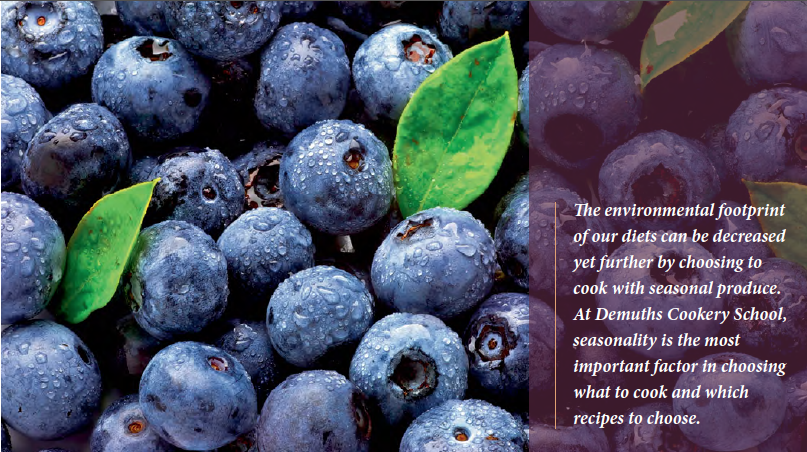Plant based diets are becoming popular as we choose to eat less meat and more vegetables. Food and issues surrounding sustainability are irrefutably linked.
Rachel Demuth of Plant Based Cookery School, Demuths, in Bath explains more.
From production methods, water use, food miles, excessive packing, overconsumption and often appalling levels of food waste, the impact food has on the environment is complex and increasingly severe. As global population increases, so is meat consumption and the world simply will not be able to feed everyone a meat and dairy rich diet. However, our awareness of these problems is growing. The internet, TV, press and social media have played a big part in exposing the truth behind intensive food production, helping
people make informed decisions about what they choose to eat.
An ever-increasing number of people are adopting a plant based diet and, in line with this, at Demuths Cookery School we have seen a huge rise in demand for vegan classes. Whether for ethical, environmental or health reasons, or all three, more people than ever before are moving away from meat, dairy and other animal products. With more vegans comes an increased demand for plant-based food and dishes. Restaurants are having to take the popularity of a plant based diet on board and become more creative with their menus.
Creative chefs can use vegetables in new and exciting ways, preparing and cooking them in modern styles to appeal not only to vegetarians or vegans but also to everyone who is looking for a new and enjoyable eating experience, all the while reducing the impact on the world around us.
The environmental footprint of our diets can be decreased yet further by choosing to cook with seasonal produce.
At Demuths Cookery School, seasonality is the most important factor in choosing what to cook and which recipes to choose. In late summer we are spoilt for choice as there is a bounty, some people call it a glut, of locally grown vegetables to choose from including tomatoes, peppers and aubergines. Tomatoes are endlessly versatile and one of our most indispensable ingredients, which we use all year round.
In the summer when tomatoes are at their best, buy lots, enjoy them fresh but also make passata (tomato sauce), which can be frozen and then used throughout the winter. Eating British tomatoes in the summer season is by far the best choice as it avoids the lengthy transport from southern Spain. Sweet red peppers are annual plants and produce the well recognised large bell-shaped fruits that can be red, orange, yellow or green. Choose red over orange and yellow as there is little merit in green peppers, always frustratingly added to the cheaper bags of mixed peppers in the supermarkets. Although grown in the UK, many of the peppers in our supermarkets have been shipped from Holland so always check the label.
The energy consumption and emissions associated with producing tomatoes, peppers and aubergines is significantly lower in the summer when no additional heating is required. In the winter the choice is more difficult as all three crops will be grown in heated greenhouses, with artificial lighting. There are some innovative solutions however – greenhouses can be heated by surplus energy from industrial processes, such as the British Sugar refinery in Norfolk with a tomato greenhouse next door. On the Isle of Wight, which is renowned for its
excellent tomatoes, they are utilising solar panels and ground source heat pumps to heat the greenhouses in winter.
Article featured in ‘GREATEST BRITISH COOKERY SCHOOLS’ Guide to ICSA. Shop here

